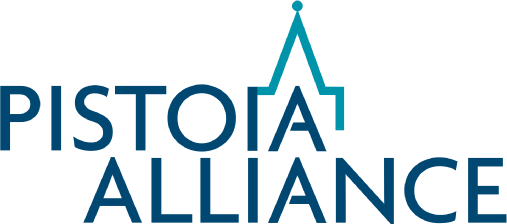The Pistoia Alliance HELM project announces free MarvinBeans 5.0 licenses and integration of HELM with the RDKit cheminformatics suite
Wilmington, DE – The Pistoia Alliance HELM project has made two major announcements that help cement the reputation of HELM as the de-facto standard for describing and working with complex macromolecular structures. Firstly, HELM users can now take advantage of free MarvinBeans 5.0 licenses for the HELM toolkit. Secondly, RDKit is now HELM-enabled, making it a valuable addition to the extensive range of open source HELM-enabled tools.
As a very strong supporter of the HELM standard (Hierarchical Editing Language for Macromolecules), ChemAxon has agreed to issue a free license for the utilization of the MarvinBeans v5.0 library within the HELM toolkit, thus negating the previous requirement for end-users to purchase a license. This removes a major barrier to fully free utilization of HELM by potential adopters, and is a very generous gesture that further highlights ChemAxon’s belief in the power and value of the HELM standard.
“This is a significant development for the HELM project,” said Sergio Rotstein, Director of Research Business Technology at Pfizer and Domain Lead for the Pistoia Alliance HELM project. “Thanks to the generosity and vision displayed by ChemAxon, HELM can now be distributed and utilized at no cost to adopters, which further aligns with the true spirit of Open Source. We are grateful to ChemAxon for their commitment to pre-competitive collaboration, and are confident that this will have a positive impact on continued adoption of HELM across our industry.”
ChemAxon’s Jon Patterson said “We are pleased to take part in this milestone for the HELM project and the role it will play with increased adoption of the standard. We look forward to continued collaboration with the Pistoia Alliance as the initiative evolves.”
In addition, the HELM project is pleased to announce the implementation of HELM import and export capabilities in the RDKit chemical toolkit. This functionality, developed independently by NextMove Software, provides an important bridge between chemical and biomolecular space, particularly for computational scientists that want to utilize RDKit’s deep cheminformatics capabilities in the context of larger entities such as peptides and proteins. It also provides organizations with a tool that can enable the conversion of their existing collections of macromolecules into HELM.
Sergio Rotstein commented, “The new functionality in RDKit is an exciting indicator of good health for the overall HELM project, with a steadily-growing list of individuals and organizations outside of the core project team contributing new functionality to the codebase and integration with other technologies.”
Author Roger Sayle of NextMove Software added, “As a contributor of both Java code to the Pistoia Alliance’s HELM toolkit and C++ code to RDKit, bridging these two communities by adding HELM peptide support to RDKit seemed like a logical next step.”
Greg Landrum, Global Head of Chemical Information Systems at the Novartis Institutes for BioMedical Research and lead of the RDKit open-source project added: “As we start to use HELM in our systems for registering sequence-based biologics within NIBR, it’s fantastic to be able to use the same open-source tooling that we apply to small molecules. I’m looking forward to an ongoing collaboration with NextMove Software and the rest of the HELM community to expand on RDKit’s ability to handle HELM.”
The HELM standard has attained a tremendous growth in popularity in the R&D informatics space since its initial release in 2012. Before HELM there were no tools available for scientists to rigorously represent complex biomolecules (e.g. bioconjugates, unnatural peptides) in their systems, leading to “pick and mix” approach of multiple nomenclatures and textual descriptions. HELM provides a one-stop-shop solution consisting of an open standard and accompanying toolkit that enables the representation of a wide range of biomolecular entities including oligonucleotides, peptides, proteins, antibodies and drug-antibody conjugates, supporting both the natural and non-natural building-blocks commonly used today.
About ChemAxon
ChemAxon provides cheminformatics software platforms, applications and services to optimize the value of chemistry information in life science and other R&D. Our mission is to enable scientists to manage their chemical and related data via intuitive, powerful and cost effective informatics tools, developed together with our customers and partners. www.chemaxon.com
About NextMove Software
NextMove Software develops innovative informatics solutions to support the pharmaceutical and chemical industries. Founded in 2011, NextMove Software’s products are used by 8 out of the top 12 pharma companies. In addition, to its commercial operations, NextMove Software’s employees also contribute to several open source cheminformatics projects, including RDKit, HELM, CDK, Open Babel and OPSIN. www.nextmovesoftware.com

 Wilmington, DE – The Pistoia Alliance, a not for profit organization working to improve collaboration in the life sciences industry, has started work on the
Wilmington, DE – The Pistoia Alliance, a not for profit organization working to improve collaboration in the life sciences industry, has started work on the  Hinxton, UK – ELIXIR and the Pistoia Alliance will be collaborating as part of the
Hinxton, UK – ELIXIR and the Pistoia Alliance will be collaborating as part of the  Wilmington, DE, 13th October 2015 – The shortlist of finalists for the
Wilmington, DE, 13th October 2015 – The shortlist of finalists for the  Wilmington, DE, 13th October 2015 – The Pistoia Alliance has appointed Dr Steve Arlington as its new President. Steve joins as the Pistoia Alliance continues to drive to increase the organization’s impact on the global innovation landscape in life sciences R&D.
Wilmington, DE, 13th October 2015 – The Pistoia Alliance has appointed Dr Steve Arlington as its new President. Steve joins as the Pistoia Alliance continues to drive to increase the organization’s impact on the global innovation landscape in life sciences R&D.